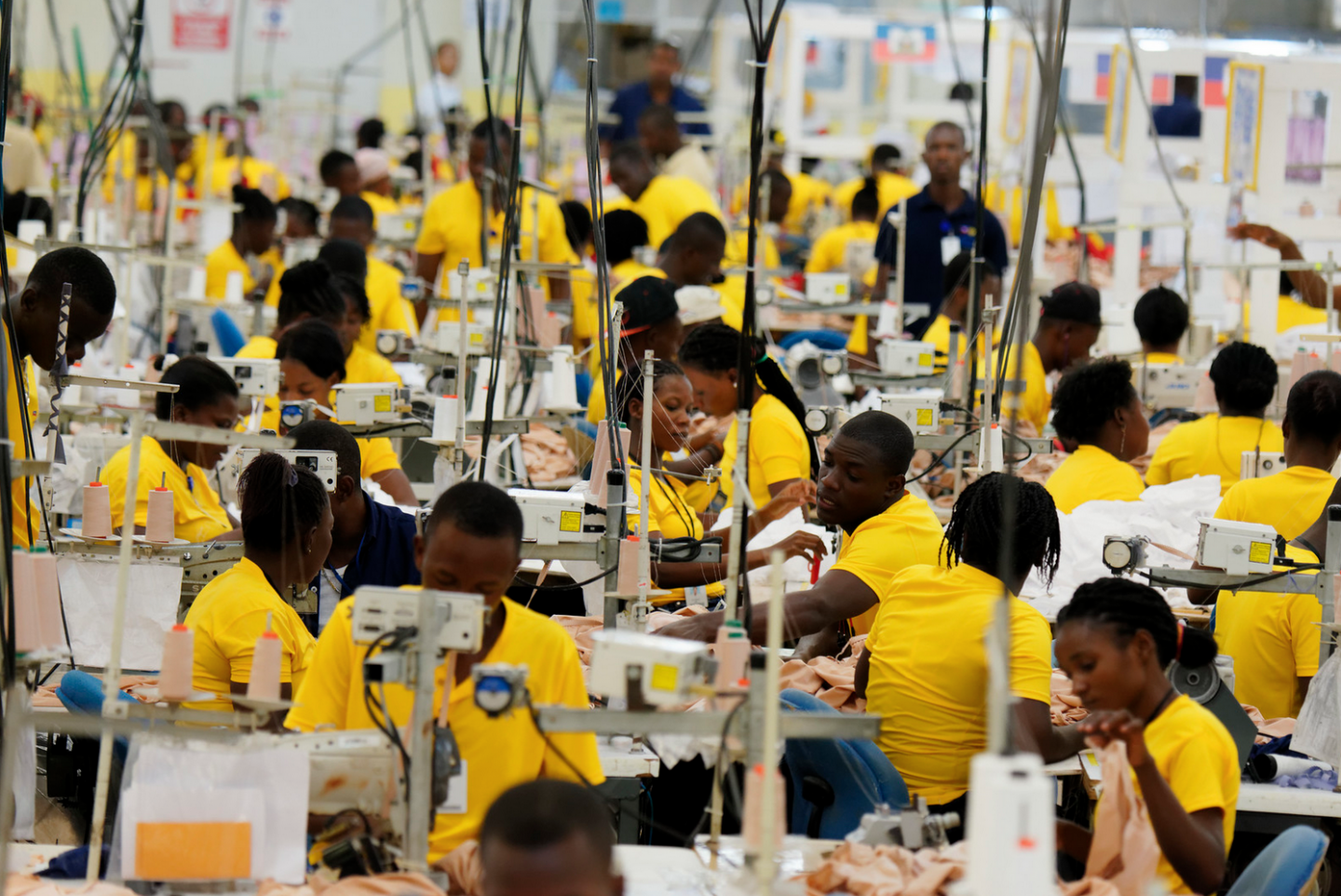27 August, 2020Tensions are rising in Haiti’s garment industry, where IndustriALL affiliate GOSTTRA reports that workers are struggling to survive in the midst of a deepening Covid-19 crisis.
The persistent problem of non-compliance with social security payments in the industry has recently come to a head with disastrous consequences.
Two workers from factories in the Palm Apparel Group died after being denied medical care after their employer reportedly failed to pay their social security contributions on time. Sandra René died from complications during her pregnancy, while Lionel Pierre died after being denied dialysis treatment. Workers at both factories downed tools in protest.
Employers are also clamping down against GOSTTRA union leaders who are trying to defend their members’ interests.
- At Premium Apparel, 43 union leaders and members were dismissed after protesting against the company’s decision to send them home in the middle of the day.
- At Horizon, union leader Sandra Emilion was dismissed after lodging a complaint against excessively high targets.
- At MBI, union leader Sonia Saintvil was unfairly dismissed after rejecting an offer of promotion on condition she quit the union.
Roughly a third of the 57,000 workers in the country’s garment industry are currently suspended or terminated and have yet to receive any compensation from the government in spite of earlier promises. The rest are working reduced hours in unsafe factories that lack even the most basic precautions to help prevent the spread of the coronavirus.
At the same time, the price of staple foods has increased sharply; the price of rice and beans has jumped by almost 135 per cent, while propone gas has risen by 50 per cent. In addition, Haiti was hard hit by the recent hurricane Laura and is now in need of humanitarian support.
IndustriALL Global Union general secretary Valter Sanches says:
“Haiti is among the twenty poorest countries in the world. Boosting the garment industry through preferential access to US markets was supposed to kick start an economy on its knees. Instead, the country has pursued a course of deregulation and suppression of labour costs in order to remain attractive in precarious global supply chains.
"The government, with the support of brands and retailers, now needs to take urgent action to protect workers who are facing terrible hardship during this pandemic.”
Haiti is one of eight priority countries for ILO’s Call to action to support the garment industry, although little progress has been made so far.
IndustriALL has written to the employers concerned and has called on the Labour Ministry as well as on brands and retailers, including Gildan, F&T Apparel, Wal-Mart, and Fruit of the Loom, to intervene to help resolve the conflicts.
Garment employees are seen working in the sewing section of a clothing plant in Haiti. Photo: Marcel Crozet / ILO
